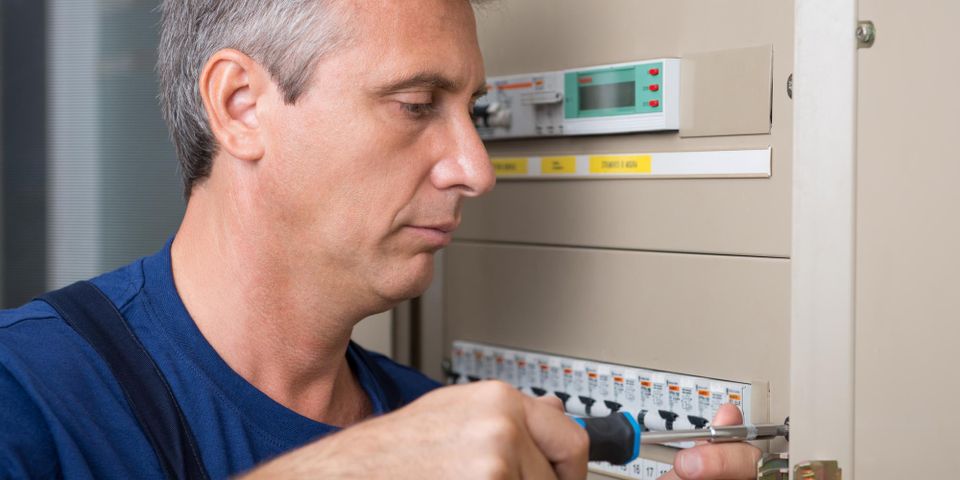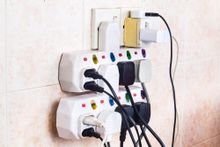
A circuit overload is created when too much current flows through the wires. Circuit breakers, or fuse boxes in older homes, are in place to prevent damage to a home. Although it helps stop high levels of current from entering your household, it does not stop the breakers from tripping from a high-current draw from appliances and other electronic devices. An electrician may be necessary to fix the problem, but here a few safety tips you can practice to avoid circuit overload.
3 Tips to Avoid Circuit Overloads
1. Know Your Wattage
Breakers, or fuses, are generally of the 15-amp or 20-amp variety. In electronics, the mathematical equation is amps X volts = watts. Most homes are 120 volts, so a 15-amp breaker can handle, 15 amps X 120 volts, or 1,800 watts, and a 20-amp breaker can handle 2,400 watts. However, the recommended wattage usage is 80% of the maximum, so the actual values are 1,440 watts and 1,920 watts respectively. These values give you the maximum wattage amounts per circuit. A circuit may pass through more than one room, so you need to shut off one breaker and go through the house to determine which items were turned off.
2. Avoid Cluttering Outlets
 Every appliance, lamp, and light bulb draws wattage from your circuit. If you’re figuring out the wattage of a kitchen, which is usually a 20-amp breaker, then count all plugged in appliances. Wattage is typically written on the appliance or in the user manual, but keep in mind that the wattage only applies when the appliance is turned on. The stove is on its own circuit, and don’t forget to count kitchen light bulbs. Power strips are not recommended because they can cause a sudden draw on the circuit. If you need to use an extension cord, only connect one item to it, and use it as an extension to another circuit area.
Every appliance, lamp, and light bulb draws wattage from your circuit. If you’re figuring out the wattage of a kitchen, which is usually a 20-amp breaker, then count all plugged in appliances. Wattage is typically written on the appliance or in the user manual, but keep in mind that the wattage only applies when the appliance is turned on. The stove is on its own circuit, and don’t forget to count kitchen light bulbs. Power strips are not recommended because they can cause a sudden draw on the circuit. If you need to use an extension cord, only connect one item to it, and use it as an extension to another circuit area.
3. Contact an Electrician
If circuit overloads are a common problem, then it may be time to call an electrician. Your problem may not be a circuit overload, but a short circuit, which is caused from by poor wiring or another internal electrical issue. Short circuits have a better chance of creating a house fire, causing damage to electronics, or shocking individuals
If your lights dim when you turn on the microwave, or the circuit breaker keeps tripping, then contact an expert electrician from Patnode Electric in Mansfield, CT. Since 1988, they’ve provided services from outlet installations to complete electrical upgrades to homeowners in Willington, Vernon, Ellington, and Windham. They also offer automatic and backup generator services. For more information call (860) 429-3574 or visit them online to review some of their services.
About the Business
Have a question? Ask the experts!
Send your question

